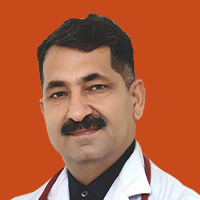

Successful Treatments
Clinics
Doctors
What is Anorexia?
Anorexia is a disease where the loss of desire to have food occurs, even when one is hungry. This disease is called as ‘aruchi’ in Ayurveda. Such conditions arise due to a sedentary lifestyle, stress and wrong eating patterns. In this condition, the person has no appetite for food due to indigestion or psychological causes. In some cases, the patient may get a bad taste in the mouth and is seen with no desire to swallow the food.
Anorexia Nervosa
Know that anorexia (simple loss of appetite) is not anorexia nervosa (commonly known as anorexia), which is a serious psychological and physiological condition usually found in women where they develop an aversion to eating and have a bad body image and a fear of looking obese. A person with anorexia nervosa usually has severe and even life-threatening weight loss. On the other hand, anorexia (the simple loss of appetite) is often temporary and does not develop into anorexia nervosa.
Anorexia Causes
Although the clear cause of anorexia is still not reasoned, it is generally believed to stem from a combination of the person’s psychological status along with some biological factors and environmental surroundings:
- Genetic predisposition: The fact that there is a family history of eating disorders is a risk factor.
- Psychological factors: Perfectionists, anxious people, and neuroticism tend to be the usual traits of these patients.
- Cultural impact: Societal pressures that glorify thinness and denigrate body fat.
Risks & Complications
Anorexia is not just about food. Its repercussions can impact every other aspect of health:
- Physical health risks: These include severe malnourishment, heart issues, bone thinning, i.e. osteoporosis, anaemia, loss of water (dehydration), constipation, and liver failure.
- Mental health issues: Some comorbid factors with anorexia are the presence of anxiety, clinical depression, and obsessive-compulsive disorders.
- Severe conditions: In extreme cases, anorexia can be life-threatening due to its severe physical health impacts.
When to See a Doctor?
If you or someone you know is having these signs of anorexia, seeking timely help is crucial:
- Recognising the signs: This is the first step toward healing.
- Medical intervention: It’s essential to consult with certified Ayurvedic professionals if there’s a suspected eating disorder.
Ayurvedic Treatment for Anorexia
Ayurveda does not look at anorexia as simply a disease to be treated physically. It is perceived as a disturbance of the mind. The Ayurvedic term for anorexia is ‘Aruchi,’ and it is believed to be caused by an imbalance in the bodily doshas, particularly a disturbance in the Agni (digestive fire).
Herbal Remedies
There are many medicinal plants in Ayurveda that help in maintaining the digestive fire and improving the appetite. Common Ayurvedic Aushadis make use of Pippali, black and ginger pepper.
Changes in Eating Habits
You will find that for anorexia, the Ayurvedic dietary suggestions comprise of foods that are warm or cooked and are easily chewable and acceptable to the digestive fire. Turmeric, cumin, coriander and cardamom, among other spices are highly recommended for the purpose of improving appetite and facilitating proper digestion.
Detoxification (Panchakarma)
Procedures like Panchakarma can cleanse the body of toxins that are believed to hinder the digestive system. Some common Anorexia Therapies include Vamana (therapeutic vomiting) or Virechana (purgation), but they need to be utilised under strict professional supervision to restore body balance.
Yoga and Meditation
Regular practice of yoga and meditation can help address the psychological aspects of anorexia by promoting a sense of peace and body awareness. Specific yoga poses like Pavanamuktasana (Wind Relieving Pose) and Surya Namaskar (Sun Salutation) are beneficial.
Lifestyle Adjustments
Integrating a routine, managing stress through mindfulness or meditation, and participating in anorexia therapies for mind wellness can create a foundation for recovery.
Jiva’s Evidence-Based Treatment Process
Nadi Pariksha
Starting with Nadi Pariksha, Jiva's certified Ayurvedic doctors use this traditional pulse diagnosis to detect imbalances and assess organ health, crucial for diagnosing Anorexia accurately.
Prakriti Analysis
Understanding your unique physical and psychological pattern allows us to tailor Anorexia treatment plan that not only addresses symptoms but aligns with your inherent constitution for lasting health.
Samprapti Ghatak (Pathogenesis)
In our investigations, we examine the if and how Anorexia is progressing by the dietary, lifestyle, and psychosocial aspects, identifying individual factors for customised intervention and pinpointing specific triggers for targeted treatment.
Chikitsa Sutra - Personalised Treatment Plan
After that, we create a detailed Anorexia Ayurveda treatment plan, which consists of diet modifications, lifestyle adjustments, herbal medications, and specific therapies that aim to restore dosha balance and enhance digestive health.
Continuous Monitoring & Amendments
Continuous tracking of treatment effectiveness allows us to make necessary adjustments, ensuring that you achieve the best results from your personalised Anorexia treatment plan with Jiva's ongoing support.
What Our Patients Say
87% of patients rate us excellent in service.
78% of patients saw significant improvement in 3 months of treatment.
92% of patients stopped allopathic medicines completely.
FAQs
Ayurveda views anorexia nervosa as a result of an imbalance in the doshas, particularly Vata and Pitta. This imbalance can lead to a disturbed appetite, altered metabolism, and a distorted perception of the body.
Yes, Ayurveda provides a holistic approach to treating anorexia nervosa. It focuses on restoring balance to the doshas, addressing underlying psychological factors, and promoting healthy eating habits.
There are two types of Anorexia: one is the restricting type, where individuals primarily restrict their food intake. Second is the Binge-eating/purging type, where individuals engage in binge-eating followed by purging behaviours such as vomiting, excessive exercise, or laxative abuse.
While both are eating disorders, the primary difference lies in the eating patterns: Anorexia Nervosa: Characterized by severely restricted eating and a fear of gaining weight. Bulimia Nervosa: This involves binge-eating followed by purging behaviours.
Some effective Anorexia nervosa therapies include: Panchakarma: A comprehensive detoxification and rejuvenation therapy. Lifestyle changes: Promoting healthy habits like regular exercise, stress management, and adequate sleep. Psychological counselling: Addressing underlying emotional and psychological issues.
Top Ayurveda Doctors
Our Happy Patients
Social Timeline
Home Remedies
- पेट में गैस, जलन या संक्रमण? इन घरेलू उपायों से पाएं राहत
- पेट में गैस, अपच और फुलाव का आयुर्वेदिक इलाज - मुफ़्त परामर्श
- एनल फिशर से परेशान हैं? ये आयुर्वेदिक नुस्खे देंगे राहत और आराम
- कब्ज़ का आयुर्वेदिक इलाज - मुफ़्त परामर्श
- एसिड रिफ्लक्स का घरेलू इलाज - मुफ़्त आयुर्वेदिक परामर्श
- Food Poisoning का आयुर्वेदिक इलाज - मुफ़्त परामर्श
- क्या बार-बार उल्टी हो रही है? इन घरेलू उपायों से पाएं तुरंत आराम
- क्या आप जानते हैं? इन नुस्खों से पेट दर्द जड़ से खत्म होता है!
- बार-बार एसिडिटी? ये देसी नुस्खे तुरंत देंगे आराम!
- दवा की ज़रूरत नहीं! लूज़ मोशन का रामबाण इलाज घर पर ही
- Home Remedies for Vomiting
- Home Remedies for Piles
- Home Remedies for Food Poisoning
- Home Remedies for Stomach Infection
- Home Remedies for Bloating
- Home Remedies for Anal Fissure
- Home Remedies for Constipation
- Home Remedies for Acid Reflux
- Home Remedies for Acidity
- Home Remedies for Stomach Pain
Related Disease
- Ayurvedic Treatment for Acid Reflux
- Ayurvedic Treatment for Anemia
- Ayurvedic Treatment For Anorexia
- Ayurvedic Treatment for Chronic Fatigue Syndrome
- Ayurvedic Treatment For Gastritis
- Ayurvedic Treatment For Colitis
- Ayurvedic Treatment For Crohn’s Disease
- Ayurvedic Treatment for Weakness and Fatigue
- Ayurvedic Treatment For Flatulence
- Ayurvedic Treatment for Gallstones
- Ayurvedic Treatment for Jaundice
- Ayurvedic Treatment for Liver Cirrhosis
- Ayurvedic Treatment for Sickle Cell Anaemia
- Ayurvedic Treatment For Piles And Fissure
- Ayurvedic Treatment for Irritable Bowel Syndrome (IBS)
- Ayurvedic Treatment For Hyperacidity
- Ayurvedic Treatment for Constipation
- Ayurvedic treatment for Coeliac Disease
- Ayurvedic Treatment for Peptic Ulcer
- Ayurvedic Treatment for Tapeworm
- Ayurvedic Treatment for Typhoid
- Ayurvedic Treatment for Diarrhea
- Ayurvedic Treatment for Diverticulitis
- Ayurvedic Treatment for Pinworms
- Ayurvedic Treatment for Cholera
- Ayurvedic Treatment for Emphysema
- Ayurvedic Treatment for Food Poisoning
- Ayurvedic Treatment for Atherosclerosis
- Ayurvedic Treatment for Thalassemia
- Ayurvedic Treatment for High Triglycerides
- Get Ayurvedic Treatment for Gastroenteritis
Latest Blogs
- Migraine और भोजन का समय: देर से खाना सिरदर्द को क्यों बढ़ा देता है?
- क्या एंटीबायोटिक लेने के बाद पाचन पूरी तरह बिगड़ गया? आयुर्वेद के अनुसार Colitis के उपचार जानें
- अगर मामूली आहार भी पाचन तंत्र सहन न कर पाए तो Colitis को हल्का क्यों नहीं मानना चाहिए? आयुर्वेदिक दृष्टि से जानें
- लंबे समय से सक्रिय Colitis क्यों शरीर की रिकवरी क्षमता को कमज़ोर कर देती है? आयुर्वेदिक नज़र से जानें
- नॉर्मल एंडोस्कोपी, नॉर्मल रिपोर्ट्स… फिर भी रोज़ दर्द—IBS में गलत इलाज कैसे बीमारी को Chronic बना देता है! आयुर्वेदिक उपचार समझें
- क्या बाहर का खाना या मसालेदार भोजन आपके IBS को तुरंत ट्रिगर कर देता है? आयुर्वेदिक दृष्टि से समझें और कब Ayurvedic doctor से मिलना चाहिए जानें
- IBS में दवाइयाँ काम क्यों नहीं करतीं? आयुर्वेदिक कारण और उपचार समझें
- कभी कब्ज़, कभी दस्त: यह सिर्फ पाचन नहीं, पूरे सिस्टम का असंतुलन हो सकता है! जानें कब Ayurvedic doctor से मिलना ज़रूरी हो जाता है
- क्या सर्दियों में दवाइयों के बावजूद साँस पूरी नहीं खुलती? अस्थमा की जड़ आयुर्वेद से समझें
- क्या धूल, धुआँ या परफ्यूम से तुरंत साँस लेने में तकलीफ़ होती है? Asthma के ट्रिगर आयुर्वेद की नज़र से समझें
- सर्दियों में अस्थमा क्यों ज़्यादा बिगड़ जाता है? ठंडी हवा और कफ-वृद्धि का आयुर्वेदिक कारण जानें
- क्या ठंडी हवा लगते ही सीने में जकड़न और साँस लेने में परेशानी होती है? अस्थमा को आयुर्वेद की नज़र से जानें
- क्या सुबह उठते ही बलगम के साथ खाँसी आना अस्थमा का संकेत है? आयुर्वेद से समझें
- क्या लंबे समय तक लैक्सेटिव का उपयोग आपकी कब्ज़ को और जटिल बना रहा है? आयुर्वेदिक समाधान जानें
- क्या गैस, पेट फूलना और सिरदर्द का साथ में होना Chronic Constipation का क्लासिक पैटर्न है? आयुर्वेदिक व्याख्या समझें
- क्या सुबह नींद खुलते ही पेट साफ न होना ‘धीमी अग्नि’ का संकेत है? दीर्घकालिक कब्ज़ में आयुर्वेदिक कारण जानें next topic
- क्या लंबे समय तक बैठकर काम करने से आपकी कब्ज़ लगातार बढ़ रही है? आयुर्वेदिक दृष्टिकोण देखें
- क्या कब्ज़ के चलते आपकी नींद, ऊर्जा और पाचन सब प्रभावित हो रहे हैं? आयुर्वेद में इसके मूल कारण और ज़रूरी उपाय जानें
- क्या तनाव और चिंता भी Chronic Constipation का छुपा हुआ कारण बन सकते हैं? आयुर्वेदिक दृष्टि देखें
- क्या कई दिनों तक कठोर स्टूल बनना और पेट में ऐंठन रहना Chronic Constipation की पहचान है? आयुर्वेदिक संकेत समझें
Ayurvedic Doctor In Top Cities
- Ayurvedic Doctors in Bangalore
- Ayurvedic Doctors in Pune
- Ayurvedic Doctors in Delhi
- Ayurvedic Doctors in Hyderabad
- Ayurvedic Doctors in Indore
- Ayurvedic Doctors in Mumbai
- Ayurvedic Doctors in Lucknow
- Ayurvedic Doctors in Kolkata
- Ayurvedic Doctors in Patna
- Ayurvedic Doctors in Vadodara
- Ayurvedic Doctors in Ahmedabad
- Ayurvedic Doctors in Chandigarh
- Ayurvedic Doctors in Gurugaon
- Ayurvedic Doctors in Jaipur
- Ayurvedic Doctors in Kanpur
- Ayurvedic Doctors in Noida
- Ayurvedic Doctors in Ranchi
- Ayurvedic Doctors in Bhopal
- Ayurvedic Doctors in Ludhiana
- Ayurvedic Doctors in Dehradun









































